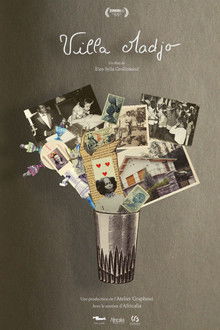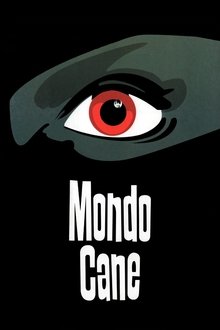Four young people from Tanzania and Cameroon complete a year of weltwärts voluntary service in Germany. For each of them, it is their first visit in Europe. The film follows the volunteers throughout their year of service, it expresses different expectations, enthusiasm, goals and challenges. The volunteers describe subjectively their personal experiences as well as their view of Germany. The documentary is a thoughtful and exciting vision of the exchange program seen by four young people.
Related Movies

Stuttgart Shanghai (2007)
A young pair from Stuttgart fly to Shanghai to hop aboard the textile business of his father while she prepares for the birth of their son. A story about the ever more common movement of Germans into the East for professional gain.
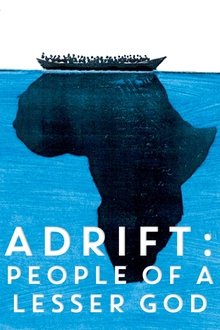
Adrift: People of a Lesser God (2010)
ADRIFT- People of a Lesser God is the story of an incredible odyssey made by several-times Pulitzer Prize-nominated undercover reporter Dominique C. Mollard. In this gripping story, Mollard sails with 38 African migrants, among them a five-month-old baby, out of West Africa on a quest to reach the golden shores of Europe. All aboard are packed together like sardines in a leaky fishing canoe as they set off under full moon on their harrowing journey. ADRIFT-People of a Lesser God captures the struggle of these desperate migrants as they brave their way across the cold Atlantic, risking their lives in search for a better future. —Ziad H. Hamzeh
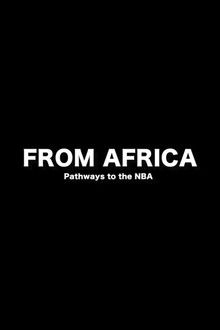
From Africa: Pathways to the NBA (2024)
In a beach town on the coast of Senegal sits a basketball academy attended by the most promising players in Africa. Through the eyes of NBA Academy Africa’s players and staff, “From Africa: Pathways to the NBA” details stories of work on the court and in the classroom, the brotherhood that these star prospects have built, and their pursuit of the NBA dream.
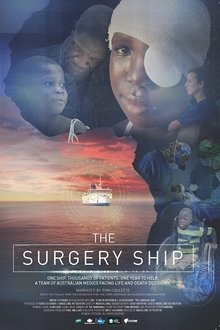
The Surgery Ship (2015)
A team of volunteer doctors and nurses are on board a unique ship. Crammed with medical supplies and volunteer medics, this floating hospital sails to the poorest nations on earth. This year they sail for Guinea on the West African Coast. On arrival they will face the most severe of medical issues, not seen in other parts of the world. But the medical challenges are only half of the story. They will confront ethical decisions as they decide who will be helped and who will not. This is a searing, complex journey for the volunteer medics, as they deal with life and death cases - and balance the fates of these patients in their hands.
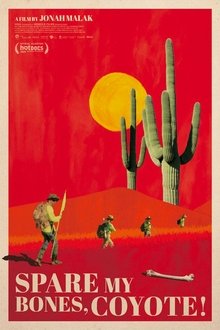
Spare My Bones, Coyote! (2026)
For the last twelve years, Marisela and Ely, along with the volunteer group The Águilas del Desierto have roamed the US-Mexico desert. Their goal: to seek, find and return to their families the bodies of migrants who died while crossing on foot. This all-consuming calling takes a crushing toll on them, but how could they stop? Spare My Bones, Coyote! follows their work, dedication, and difficult lives they have chosen to live.

Cry Freetown (2000)
An account of the victims of the Sierra Leone Civil War and depicts the most brutal period with the Revolutionary United Front (RUF) rebels capturing the capital city on January 1999.

The American Question (2024)
An 8-year journey into divided America, The American Question examines the insidious roots of polarization and distrust through past the past and present, revealing how communities can restore trust in each other to unite our country.
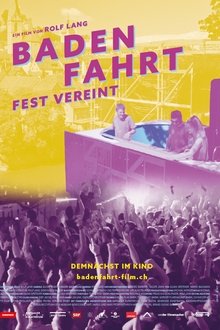
BADENFAHRT – FEST VEREINT (NaN)
Once every decade, an extraordinary folk festival puts the small town of Baden in an exceptional state of vibrancy that resonates far beyond its borders. Thousands of people contribute to the success of the Badenfahrt in numerous clubs and pubs - a festival that unites the many volunteers for ten days and nights. Over a million people celebrated the last Badenfahrt. Some of the diverse people, whether asylum seekers or CEOs, who played an active role, are accompanied by this cinema documentary. Whether it's a handful of friends daringly building a pub on a steep slope, a young team turning night into day with a party club, or half a village aiming high with its rocket launching ramp: the countless helpers, who go their own ways in normal life, join forces to create something unique before, during and after the Badenfahrt. This feel-good movie is an emotional plea for diversity and for volunteerism in a country where associations are an important pillar of society.

The Last of the Babingas (1990)
In the equatorial forest of Congo Brazzaville and the Central African Republic pygmies live. Over-exploitation and waste of resources have had a significant impact on the lives of Pygmies. The story is based on Mangala an old and wise voice of these disappearing people.
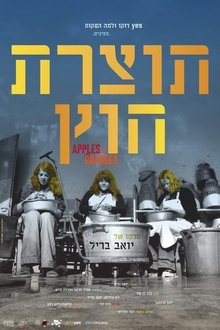
Apples and Oranges (2021)
Kibbutz volunteering began in an eclipse. The idealistic and rebellious 1960s generation was charmed by the old communist ideology as it came to life in the Israeli Kibbutz. The 1967 Six-Day War attracted a wave of support for Israel that the Kibbutz Movement saw as a miracle. When travel agencies started selling “Kibbutz Volunteering” packages, it was clear that volunteering also became a profitable business. The Kibbutz found itself facing unfamiliar phenomenon – drugs, alcohol and marriage with non-Jewish volunteers.
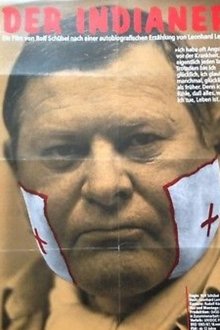
Der Indianer (1988)
Based on the autobiographical notes by Leonhard Lentz the film tells the story of a man who was diagnosed with throat cancer. Besides the progress of the desease this film also focuses on the emotions and insights of the protagonist while being in therapy.
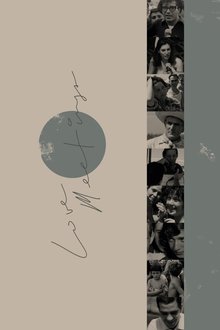
Love Meetings (1965)
Pier Paolo Pasolini sets out to interview Italians about sex, apparently their least favorite thing to talk about in public: he asks children if they know where babies come from; asks old and young women if they support gender equality; asks both sexes if a woman's virginity still matters, what do they think of homosexuality, if divorce should be legal, or if they support the recent abolition of brothels. He interviews blue-collar workers, intellectuals, college students, rural farmers, the bourgeoisie, and every other kind of people, painting a vivid portrait of a rapidly-industrializing Italy, hanging between modernity and tradition — toward both of which Pasolini shows equal distrust.
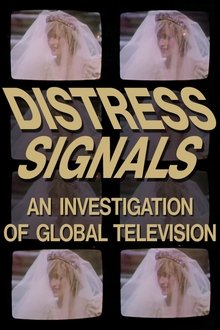
Distress Signals (1991)
American television programming dominates around the world at the expense of regional cultural voices.
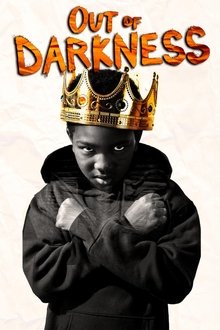
Out of Darkness (2016)
Out of Darkness is a full length three-part documentary by director Amadeuz Christ (Δ+), examining the untold history of African people, the African cultural contribution to the nations of the world, and the events that have contributed to the condition of African people today. Out of Darkness will explore the Nubian/Kushitic origins of Nile Valley Civilization, contact between Africa and the Americas since the times of antiquity, as well as the influence of the Moors in Europe leading to Europe’s intellectual Renaissance. In addition, the film will analyze the history of modern day racism, the concept of “white supremacy,” the impact of Hip Hop as a social movement, and the idea of nationhood. Out of Darkness is narrated by Prof. Kaba Kamene and co-stars Dr. Umar Johnson, Dr. Claud Anderson, Tim Wise, Prof. James Small, Dr. Joy DeGruy, Anthony Browder, Sabir Bey, Atlantis Browder, and Taj Tarik Bey.
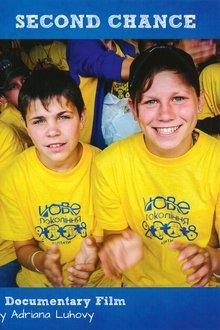
Second Chance (2013)
Second Chance tells a story of Ukrainian orphaned children and the Canadian volunteers who spend their summers working along side them. The film follows first time volunteer and filmmaker, Adriana Luhovy, as she learns about the children and becomes witness to their strengths and resilience. Converging in Yaremche in the Carpathian Mountains of Ukraine, over 500 orphaned children come together from all over the country. At first quiet and fearful, they learn to trust one another and their counsellors. By countering heartbreaking statistics - 60% of orphaned girls are trafficked within the first year of leaving the orphanage; 50% of boys end up in jail; 10% commit suicide - the volunteers are dedicated to making a difference in the lives of orphaned Ukrainian children.
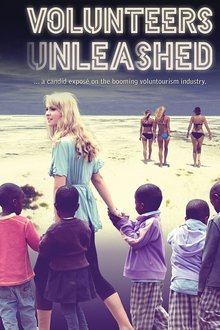
Volunteers Unleashed (2015)
Leading this story is 22-year-old Pippa Biddle, who after a series of voluntourism experiences over six years posted a critical blog. It went viral with over 15 million hits, and instantly launched her as the poster child against privileged young white women volunteering overseas. Volunteers Unleashed shows that going overseas with good intentions does not guarantee good will be done. Inspired by his daughter Jennica's life-changing experience as a volunteer in Tanzania in 2012, Vancouver filmmaker Brad Quenville (The Dolphin Dealer, Ice Pilots, Pyros, Highway Thru Hell) went back to Africa with his daughter and DOP Kyle Sandilands to shoot and develop the documentary.
